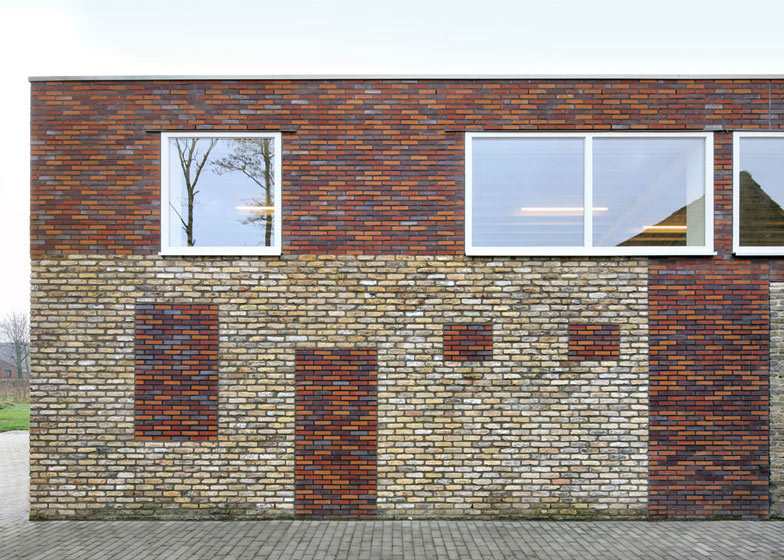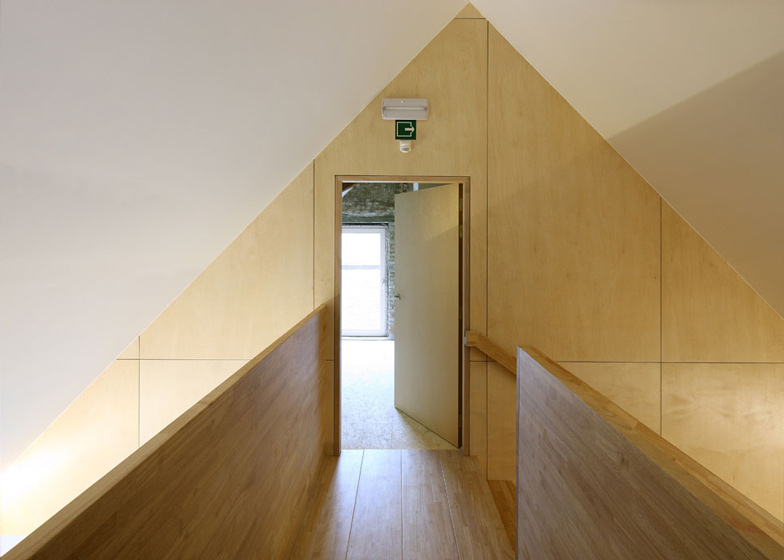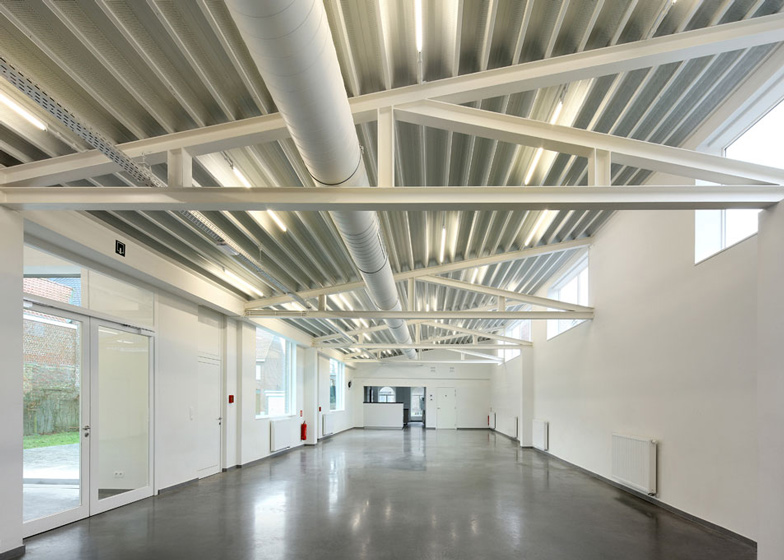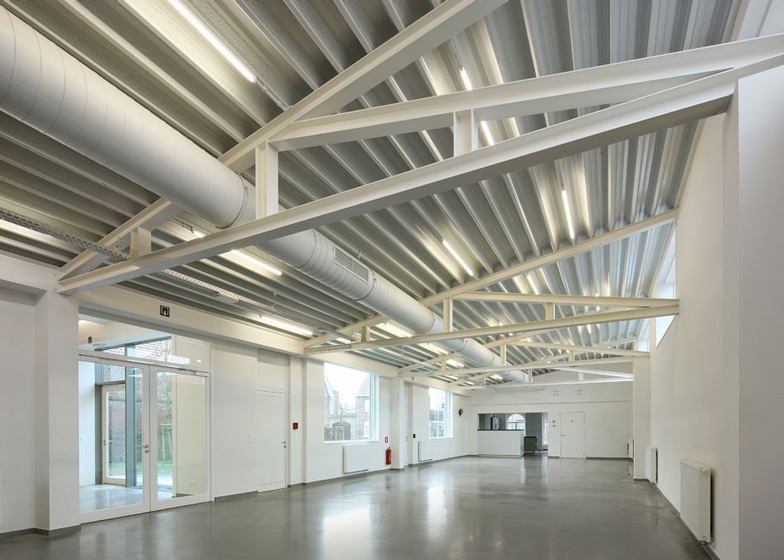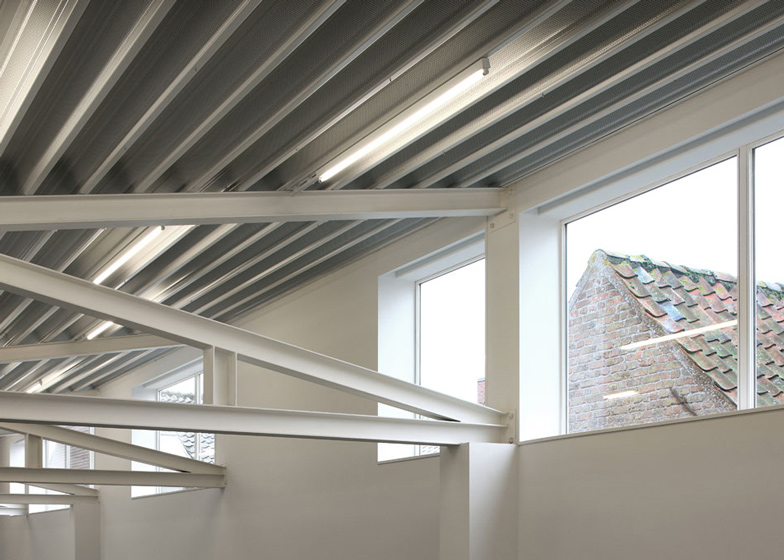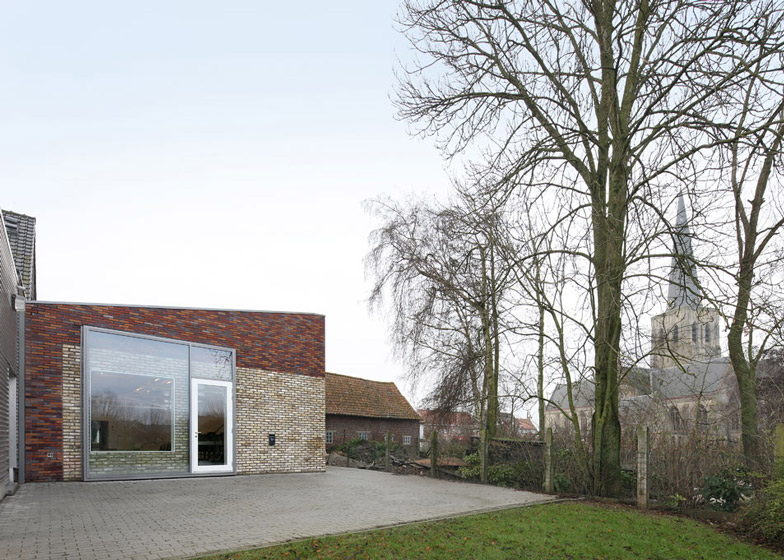Belgian studio Atelier Tom Vanhee has renovated and extended the brick buildings of a community centre in the village of Westvleteren using a contrasting contemporary brick (+ slideshow).
The site was originally occupied by a disparate cluster of buildings including a nineteenth century school building, a former town hall, a library and a youth club, which the local council asked Atelier Tom Vanhee to transform into a more practical space for community activities.
The poor condition of the facilities and lack of an obvious entrance or consistent elements unifying the buildings led the architect to propose a range of renovations, with brick acting as a common material.
"We used brick because the existing buildings were already a patchwork of different renovations from the past hundred years," architect Tom Vanhee told Dezeen. "We thought it was beautiful and that we could strengthen this by adding a modern brick."
The facade of the renovated activity hall shows evidence of former doors and windows that have been removed and filled in with new bricks. An extension made from the same brick replaces the building's old gabled roof and incorporates new windows.
"The things we changed we filled in with bricks so you can see what we did," Vanhee explained. "It also relates to the historical renovations that you can see elsewhere in the site."
To create a more obvious and practical entrance for the community centre the architects removed a derelict storage building and extended the space housing a small concert hall to create a corner enclosing a courtyard that can be used for outdoor events.
A glass and steel box projecting from the brick wall signals the new entrance, which leads into a space that connects the previously separate facilities of the centre.
The windows running along the upper section of the white-painted activity room's wall fill the space with light and provide views of the nearby church.
Materials throughout the interior were chosen based on their sustainable credentials, including FSC-certified timber used for the staircase and the highly insulated new windows.
The architects also added a green roof that reduces heat from solar gain in the summer and prevents any damage to the ceiling from heavy rainfall.
Photography is by Filip Dujardin.
The architect sent us this project description:
Community Centre Westvleteren
The meeting centre offers accommodation to various community activities. The complex of buildings consists of successive constructions, ranging from a 19th century school building and an old town hall to an industrial construction from the 1990s.
The dilapidated storage building makes place for enlargement of the meeting hall. That way the back yard becomes an outdoor space for the party room. The gabled roof is replaced by a single slope roof, making the room and space higher, and bringing a better acoustic sound in the hall. The high windows bring light and give views on the nearby church.
A central entrance in the armpit of the building complex offers the building an address. The entrance hall connects the different functions and spaces. The use of different types of bricks betray the successive renovations in the past. The new added walls in contemporary bricks build in the recent renovation strengthens the patchwork of different bricks. The meeting centre is so adapted to the modern requirements, with respect for the environment and the users, but also with a whimsical character.
A green roof keeps the meeting hall cool in summer, increases the sustainability of the epdm membrane of the roof, and constitutes a buffer for heavy rainfall. The new toilets are supplied with recycled rain water from the existing buildings.
Materials are chosen by the score at their circle of life analysis. The used wood is FSC-labelled : the structure of the light interior walls, the windows, extra wooden bars for floors and for fixating isolation. We used fibre boards. The lights are energy efficient. The heating system recuperates the heat of the evacuating gases. We took care of better isolation: we changed all windows in high isolating glass, the roofs or ceilings, the floors and new walls are isolated.

